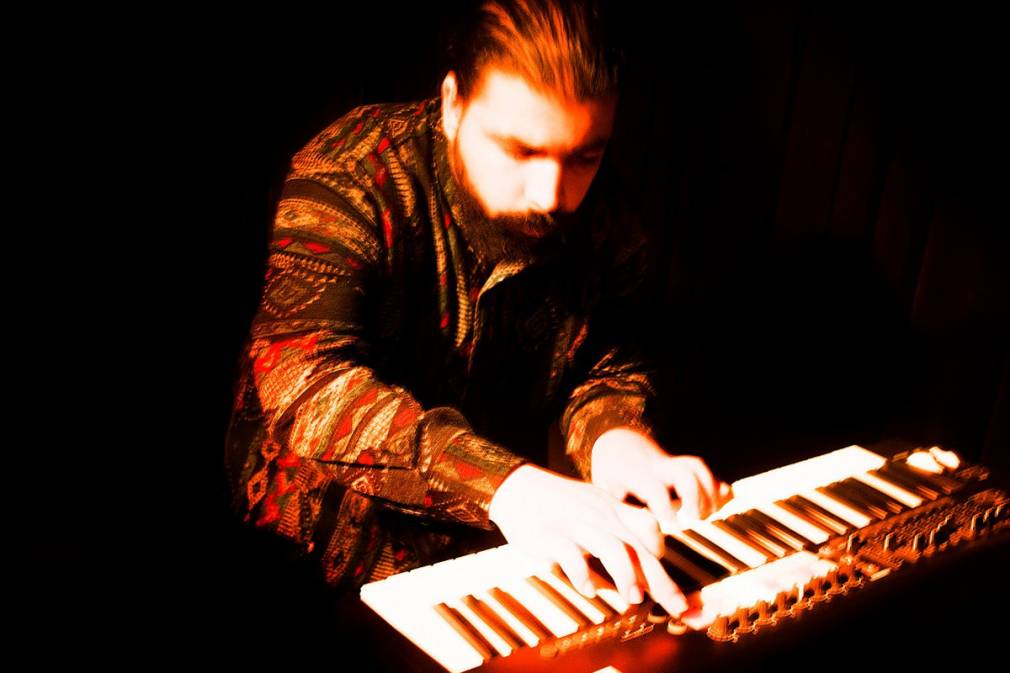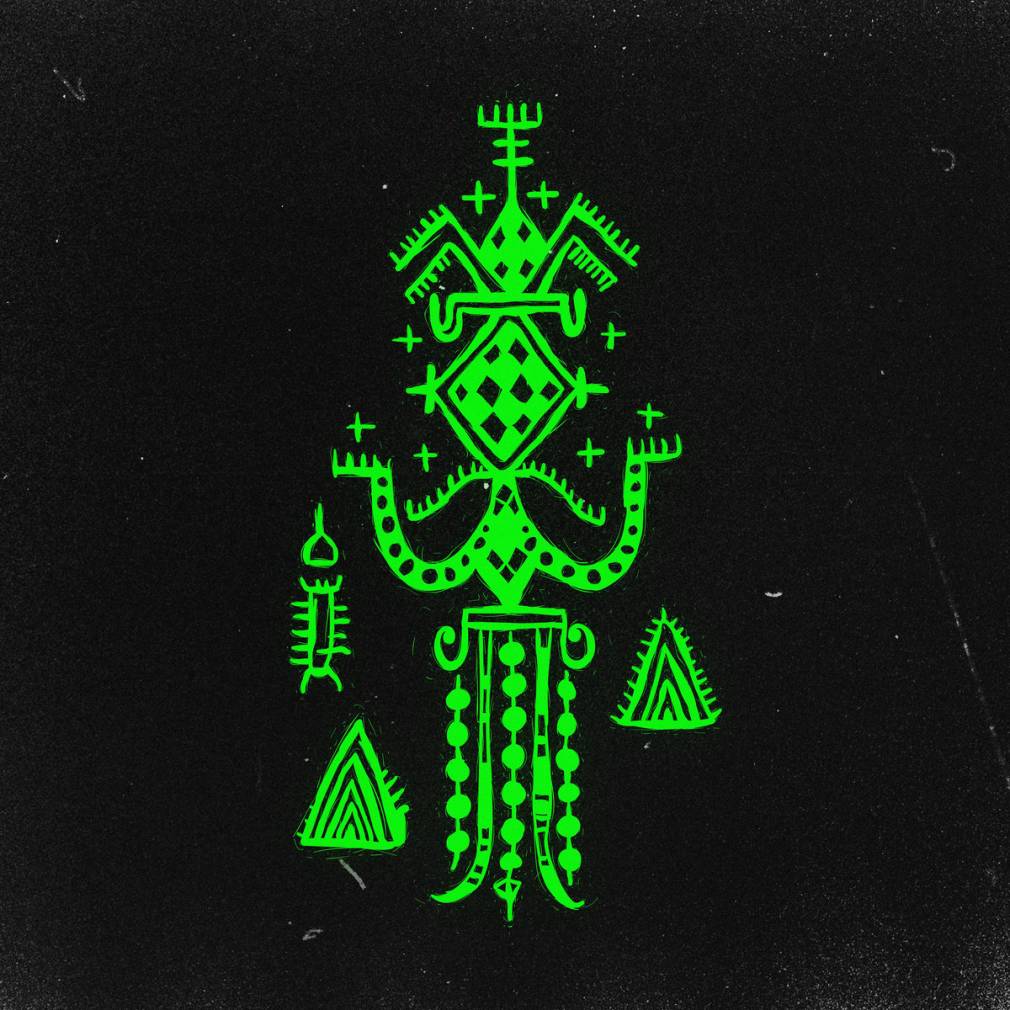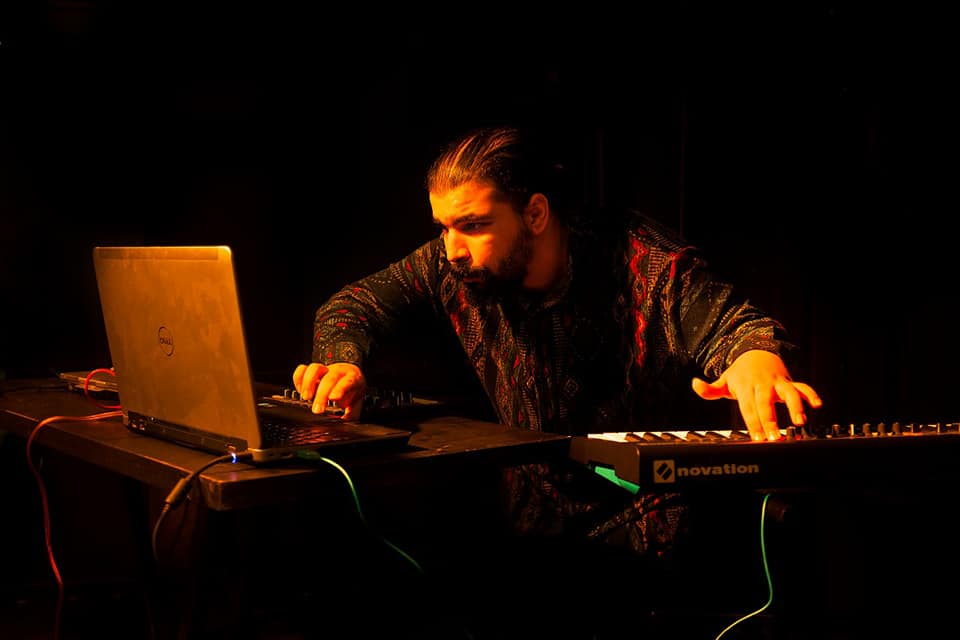With his new EP Mulid El-Magnuon, the Egyptian musician YUNIS relies on traditional wedding music and Mawlid festivities, reinterpreting them via a blend of ney music and synthesizers. PAM finds out more.
We discovered YUNIS through the excellent “Hajar El-Sha’yan,” a standout on the ephemeral compilation L’Esprit de Nyege 2020, released as part of the online festival. Soon after, the Egyptian producer released MulidEl-Magnuon, an intense EP which blends electronic music with traditional wedding and Mawlid music, popular religious events celebrating the birth of the Prophet, where pure entertainment serves as a pretext for spiritual elevation. The artist exploits this theme through his own rhythms, loops, and instruments, giving anyone who tries to date this EP a hard time. Like many emerging producers, Ahmed Younes started out making hip-hop beats, before realizing just how much richness the traditional music of his country could contribute to electronic music. Through research and subsequent composition, he took his heritage and pulled it into the contemporary world, as seen on his 2019 album The Blue Djinn Dance. Younes’ compositions are centered on the synthesizer and the ney, an ancestral flute that often features on his productions and on his label, Kafr El-Dauwar, which promotes local artists from the city of the same name.

You are a ney player. Why did you decide to use your mastery of this instrument within the electronic, rather than traditional, milieu?
Ever since I started to play music, my dream has been to produce contemporary music inspired by the traditional Egyptian heritage with all its styles and instruments. Around two years ago I started to feel that the ney, as a traditional instrument, was not enough for me to express the ideas in my mind, so I decided to explore the keyboard and electronic music to give myself the space to experiment with my ideas. At first, I was attracted to electronic music because I didn’t have enough money to record with professional musicians, but later I started to realize its aesthetics and the potential it gives to me.
Your bio tells us that you “believe in renewing.” How much of a challenge is it to renew Egyptian folkloric music?
It’s always a challenge to deal with folkloric arts. I see it happen because, with the passage of time, these kinds of arts acquire a kind of holiness, so dealing with it becomes very difficult and sensitive, and I believe that real artists should wisely deconstruct the aesthetics of their heritage, feel it, and present it with his own concept and imagination. In deep-rooted countries like Egypt, People feel proud of their heritage and culture, and always try to present it in different ways, so dealing with folklore is very common and positively perceived in my country, and we have great artistic experiments in this field.
What kinds of artists do you try to showcase on your label Kafr El-Dauwar Records?
Kafr El-Dauwar Records is an independent digital record label interested in contemporary and experimental music. It was founded by myself and Suliman, Fathi Hawas, VII, and Ibrahim X, with the aim of creating a musical movement in the city by supporting a group of artists to begin their musical journey in Kafr El-Dauwar with a view to taking it to the farthest point it could go. The kinds of artists we are trying to showcase are any artists from the town whose voice carries something they want to express from deep inside.
The Blue Djinn Dance was kind of a tribute to popular wedding songs. Mulid El-Magnuon adds to the Moulid dimension. Can you tell us more about your own interpretation of these influences?
In my dealing with Egyptian traditional music, I am trying to go beyond formalism aesthetics. I am seeking the main pillars on which the traditional style I worked on depends, then I try to realize these pillars, feel them, study them, experiment and present them according to my concept and my own preferences and aesthetics. In my work I am trying to reach these pillars through several questions. If we take my work on Zār music as an example, I started to ask myself: how do they build the song? Where did they start and at what point do they want to arrive? I am trying to explore the relation between rhythm and melody; does the melody simulate the rhythm? Does it contrast with it? How do they play percussion? Pianissimo or fortissimo? How do they build the melody? What are the frequently repeated patterns? etc.
Does it help you to understand more about your heritage?
I believe that via these kinds of questions we can understand our heritage, realize it, and become saturated with it. When we reach this moment, and only then, we are not expressing heritage, we become expressors through heritage, and this is my concept about renewal. This is how I deal with my heritage.
You played at the online Nyege Nyege Festival recently. How did you meet the team and what does it represent for you to be part of this family?
It was an honor for me to be a part of the Nyege Nyege festival (the online version). I have been following the festival for the last two years and I was very excited to play with them. I hope i’ll be able to participate again but in real life and not online. Right now I am living in Uganda as a resident at the Nyege Nyege villa in Kampala and having great times with a bunch of the best music producers in Africa. It’s a great honor for me to be among these good people.
Discover a new mix of YUNIS, broadcast on Tuesday, April 6 on the web radio Beshknow in Tehran which streams worldwide shows and mixes from David Hasert, Eddie C, Ko Shin Moon or Nuri. A selection commissioned by the cultural platform Mahalla.
Mulid El-Magnuon available via Kafr El-Dauwar Records.
Listen to YUNIS in our afro + club playlist on Spotify and Deezer.





